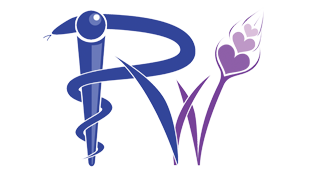The Power of Prevention
If you follow us on Instagram you may have seen that we participated in National Call Your Doctor Day earlier this week with a post about the necessity for regular checkups and preventive care. But this topic is so important to us that we couldn't contain all of our feelings on social media, so we decided to grow the conversation into heartier writeup all about the power of prevention!The health care system is slowly shifting its focus from treatment and sickness to prevention and wellness, but there's still a long way to go before we as a culture will be stopping diseases before they start.What is preventive care, why is prevention better than treatment, and how can you join us in the movement? We're tackling these big picture questions today, so keep reading for our answers!
What is Preventive Care?
You've probably heard that "an ounce of prevention is worth a pound of cure" but have you thought about how to apply this to your longterm health?Preventive care focuses on establishing your baseline health status and enhancing physical, mental, and social function. It may include immunizations, screenings for cancer and high blood pressure, physical evaluations, lab work, and even x-rays. Your doctor will determine what tests or screenings are appropriate for you during your visit, based on many personal factors, including your age, overall health status, personal health history, and your current symptoms or chronic health concerns.Living a healthy lifestyle — eating well, sleeping properly, exercising, and practicing generally healthy habits and self care — is also an important part of preventive care. The goal is to protect, promote, and maintain health and well-being, and to prevent disease, disability, and death.Prevention saves lives, yet according to the CDC, Americans use preventive services at about half the recommended rate. What are we waiting for?
Why is Prevention Better than Treatment?
As we wrote in our post earlier this week:
Reacting to changes in our health is so outdated — be proactive and schedule an appointment to start a dialogue with a professional who cares about your needs and who can help you achieve your healthiest life.
In the U.S., the traditional medical approach has been to focus on treatment rather than prevention of disease and illness. But why would we choose to ignore our health until there's a problem? Don't we want to maintain our health and understand personal health risks and how to avoid them? As we age, our bodies change and we experience new challenges. Preventive care not only establishes a baseline for our health, it helps address concerns later in life and improve opportunities for identifying risk factors.This is, of course, not to imply that there is anything wrong with treatment. We're simply encouraging a proactive rather a reactive approach to our health. We believe that considering our health holistically, with expert medical and professional care and guidance, can go a long way towards protecting us from some serious risks.
How Can You Join the Movement?
The most important thing you can do is this: place a priority on staying healthy. Once you've committed to that with intention, you should seek a medical professional who cares about your personal health and wellness goals, if you do not have one yet.Begin an open dialogue with your doctor and work together as a team. Ask questions and let them know what's on your mind. Are you under stress, wondering about nutrition, experiencing mood changes, or worried about your family's health history? Sharing these concerns can help your doctor know what's important to you and what to screen for.Schedule routine checkups and screenings, establish a baseline, and be more informed of your overall health. Too many of us delay our routine care, often placing priority on work and family care before our health. We overlook a simple phone call that could be lifesaving. And technology now makes it easier than ever to book an appointment — if your doctor offers online scheduling, you might just be a few taps away from starting your wellness journey.
What are your thoughts on preventive care? How are you taking a proactive approach to your health?
Let us know in the comments!Want to schedule an appointment with Peter or Patti? You can do so here!
If you want more self care tips, subscribe to our newsletter and receive our wellness wisdom right in your inbox.
Peter W. Rugg, MD, FACEP is an Amherst College-trained neuroscientist specializing in human neurophysiology and a University of Massachusetts Medical School-trained MD specializing in Functional Medicine. He is Board Certified in Internal Medicine and in Emergency Medicine, and together with his wife, Patti, he co-founded Rugg Wellness, PC, Functional Medicine and Integrative Nutrition Health Coach Practice.





